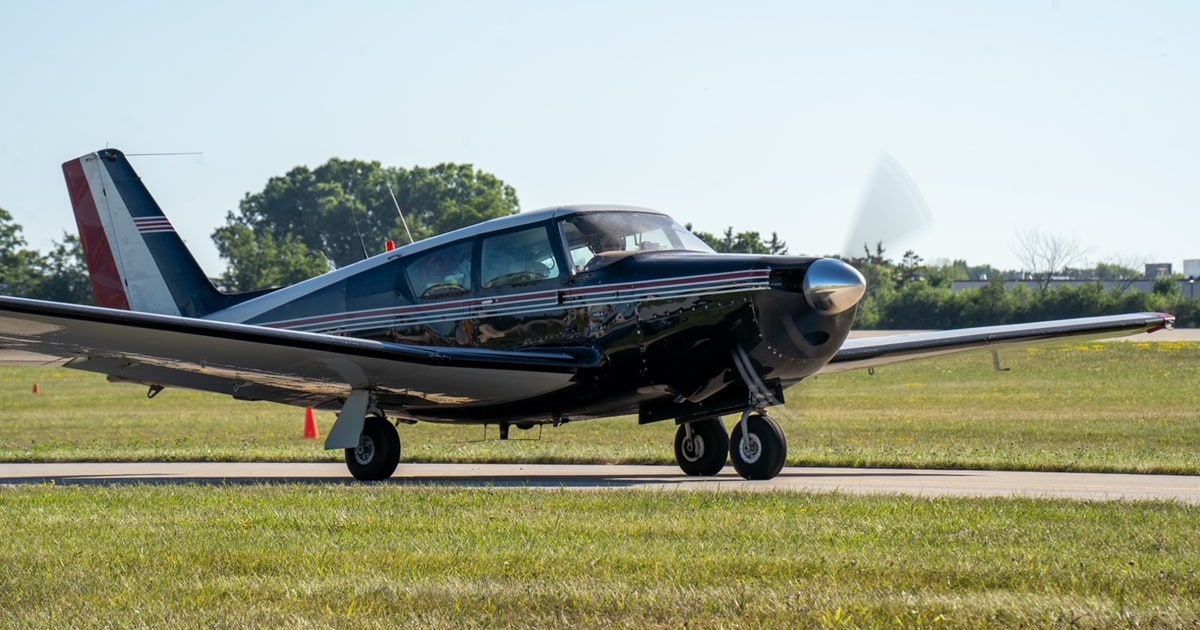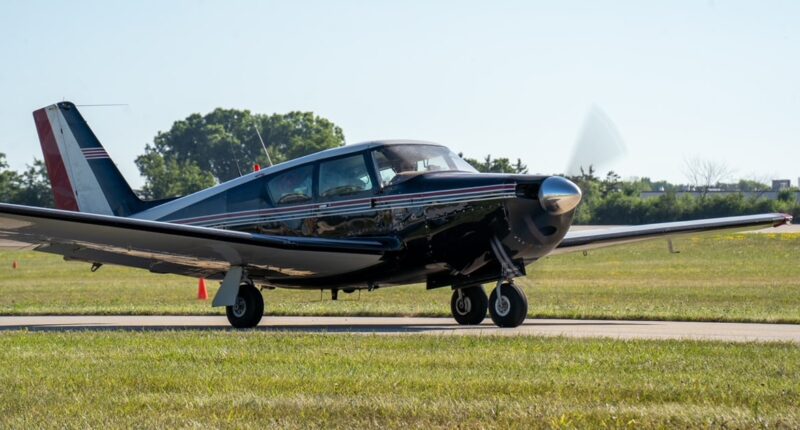
The day Kim learned that the Supreme Court had struck down Roe v. Wade and, with it, America’s constitutional right to terminate a pregnancy, she knew she had to do something, she said. On June 24, 2022, she searched online for organizations helping those who were about to lose access to abortion in their states, and she found Elevated Access.
Kim became a volunteer at the nonprofit, which helps transport via small plane women who need to travel out of state to get a legal abortion.
Elevated Access was about to launch last May amid abortion restrictions in several states, when news leaked that the Supreme Court was going to strike down Roe v. Wade, so they had to speed up the process. Since then, they haven’t stopped, Elevated Access spokesperson Fiona told Noticias Telemundo.
The network is made up of some 350 volunteers – airplane pilots, staff on the ground and people from organizations that provide related support. For safety reasons, it doesn’t give out the staff’s full names and they don’t give exact figures on how many people they have transported or where they’ve flown, Fiona said.
The flights are free for passengers seeking an abortion, saving them hundreds of dollars and days of travel.
According to Fiona, many women, especially those in service jobs with fewer economic resources, don’t get days off at their jobs. Most are already mothers, she said, and can’t afford childcare or have someone who can take care of their children for an extended period of time.
For their own protection, pilots know as little information as possible about the people they are transporting.
In private aviation, ID verification is not necessary, the founder of Elevated Access said in an NPR interview. “There’s no ticketing or TSA or anything like that. If somebody feels like they need to use a fake first name, they can definitely do that,” said the founder, who goes by Mike, in the interview.
‘This is my people’
Michelle, a young female volunteer pilot who is Latina, said she fell in love with aviation after she graduated from college and decided to become a flight attendant before going to grad school. She fell in love with flying and became an instructor.
The profile of the typical woman who seeks assistance from Elevated Access is “a woman of color, who is already a mother, of low income,” Fiona said. Many of the passengers have never been on a plane before.
For Michelle, those factors make her volunteer work all the more important, because she feels she can relate to the passengers as a woman and as a Latina; she can talk to them in their language and help them feel more calm, she said.
“For me, helping these people, I also see my mom there. I would have wanted someone to help her if she had been in this situation,” Michelle said.
“This is my community, these are my people,” the pilot said. “And I never expected that I would have such a direct role in helping them.”
Not everyone in Michelle’s family knows that she volunteers for Elevated Access, but those who do “are very proud,” she said. Her mother did worry about her when she found out, Michelle said.
Reproductive rights restrictions disproportionately impact Latina women, according to a study from the University of California Los Angeles published in December. This is because a larger portion of them are of reproductive age compared to women of other races or ethnicities, including in states that have restricted abortion.
About 46% of Latinas of childbearing age — more than 5 million Latinas — live in states that restrict reproductive rights, according to UCLA sociologist Josefina Flores Morales, the study’s lead author.
Aggravating situations
Access to an abortion can be more difficult for people who don’t have a legal immigration status, don’t speak English or are victims of domestic violence or abuse.
“It’s not like they can just go and tell their abuser what they’re going to do,” Fiona, the spokesperson, said.
Fiona said one woman they helped didn’t have her birth certificate or identification documents because they had been destroyed by her abuser, according to the woman.
In another case, Elevated Access helped a woman who was escaping an abusive situation. When someone from a sister organization went to help her pack up and leave her house, she noticed the woman brought a portable cooler that seemed to be moving.
The woman explained she was bringing an extra passenger, her cat, because she said she didn’t know “what her abuser could have done to her cat if she had left it at home with him,” Fiona said.
Kira, a flight coordinator for Elevated Access, helped with logistics that day and shared the experience on social media, calling it one of her favorite stories. She recounted that they helped the woman relocate, even though all they had to do was help her with an abortion appointment.
“None of us would want to be a part of this organization, because in a just world we wouldn’t have to be doing this,” Michelle said. “But until things get fixed, until things change, hopefully in the future, for the better, we’re here to serve the community.”
Source: | This article originally belongs to Nbcnews.com










